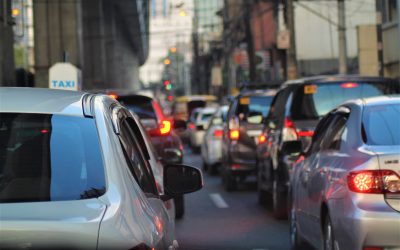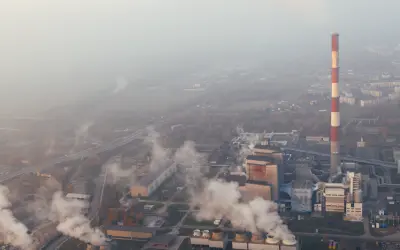By Andrej Martin Vujkovac, MD, Slovenia
 Why is clean air important for our health?
Why is clean air important for our health?
An average human takes roughly 20.000 breaths a day. The main reason for human breathing is, of course, to receive oxygen and get rid of carbon dioxide in the body- both of which are essential for survival. However, as we breathe in the air- we cannot selectively choose to only take up oxygen. All the particles thus get into our bodies and that has consequences. These consequences are severe and range from greater proneness to infectious diseases to a higher risk of NCDs. We make sure that the other things we ingest (water and food) are as clean as possible, and air should not be exempt from it.
Why must Recovery Plans focus on health?
I believe that health is an additional strong argument to already a strong case- at least from a scientific perspective. However, the challenge we have faced up until now is not that claims for more environmental policies were without scientific argumentation, but that people have not accepted the need to act on an emotional level. Perhaps, using health as a strong proponent of the argumentation will convince people how much is at stake.
Why did you sign the Medics for Clean Air manifesto?
I signed the manifesto as I believe in the cause. I also support the proposed actions and am convinced that it points toward positive behaviour change, not only for clean air but also for healthier lifestyles.
What can decision-makers do to improve air quality?
There are many actions that can be taken on a policy level- some of which are outlined in the manifesto. Decision-makers can adopt resolutions on reducing emissions, provide incentives for switching to cleaner energy and mobility, and provide the infrastructure that allows people to shift from current modes of living (e.g. transportation) to more sustainable ones, without a significant cost (including intangible cost).
Why is it important to improve air quality in order to tackle crises like COVID-19?
The pandemic has outlined how risky it is to have suboptimal environmental factors when it comes to health. Polluted air means more acute and chronic diseases, which put a strain on the healthcare systems. With a health crisis, such as the COVID-19, these already strained systems break under the pressure, exposing their fragility. If we want to build resilient health systems, we need to think about the causes for disease and prevention, just as much (if not more) as the infrastructure of hospitals and the workforce within.
“Onesnažen zrak pomeni več akutnih in kroničnih bolezni, ki bremenijo zdravstveni sistem. Podpiram predlagane aktivnosti in sem prepričan, da kažejo na pozitivne spremembe v vedenju, ne samo zaradi čistega zraka, ampak tudi zaradi zdravega načina življenja.”
 Why is clean air important for our health?
Why is clean air important for our health?



